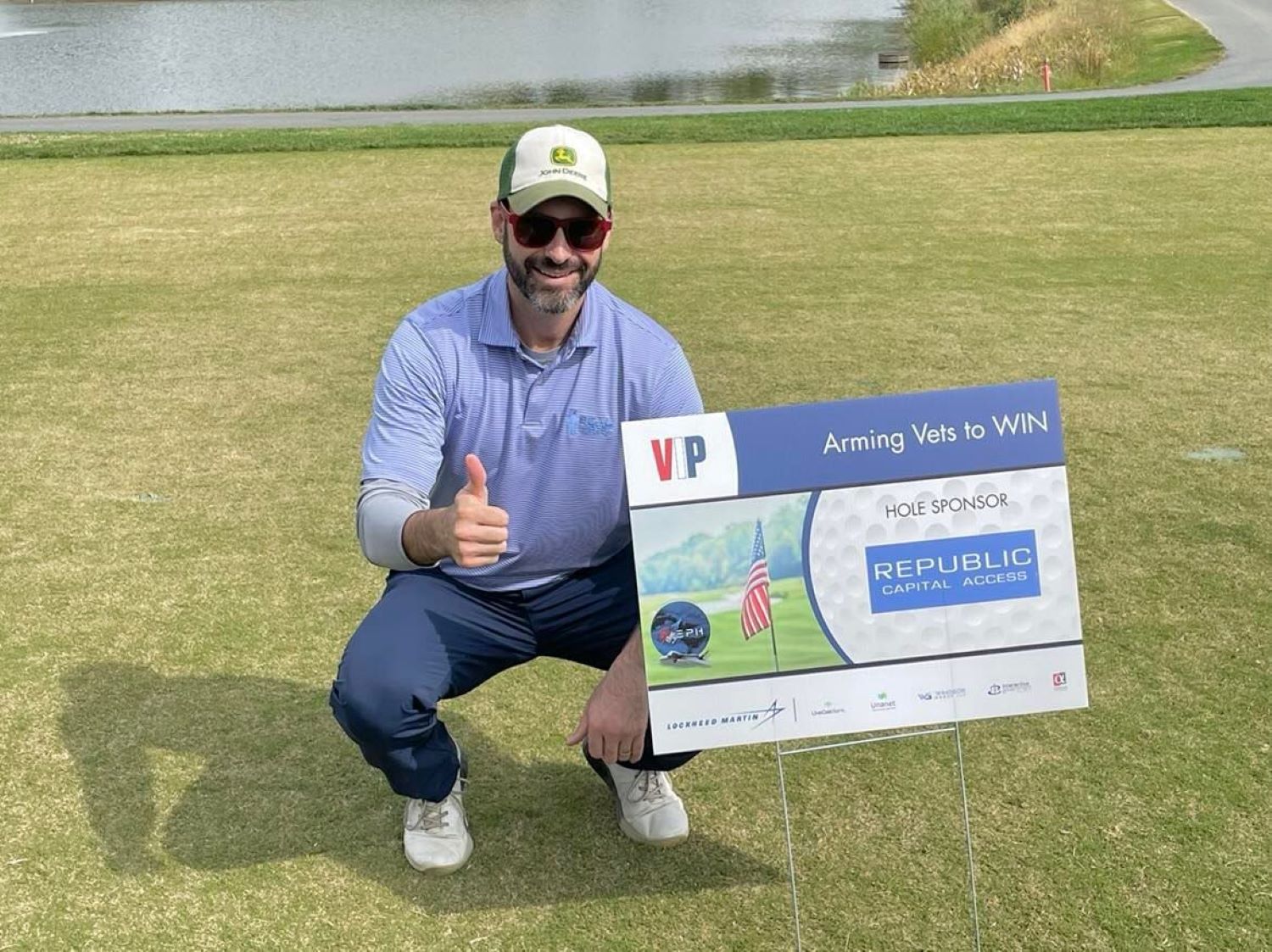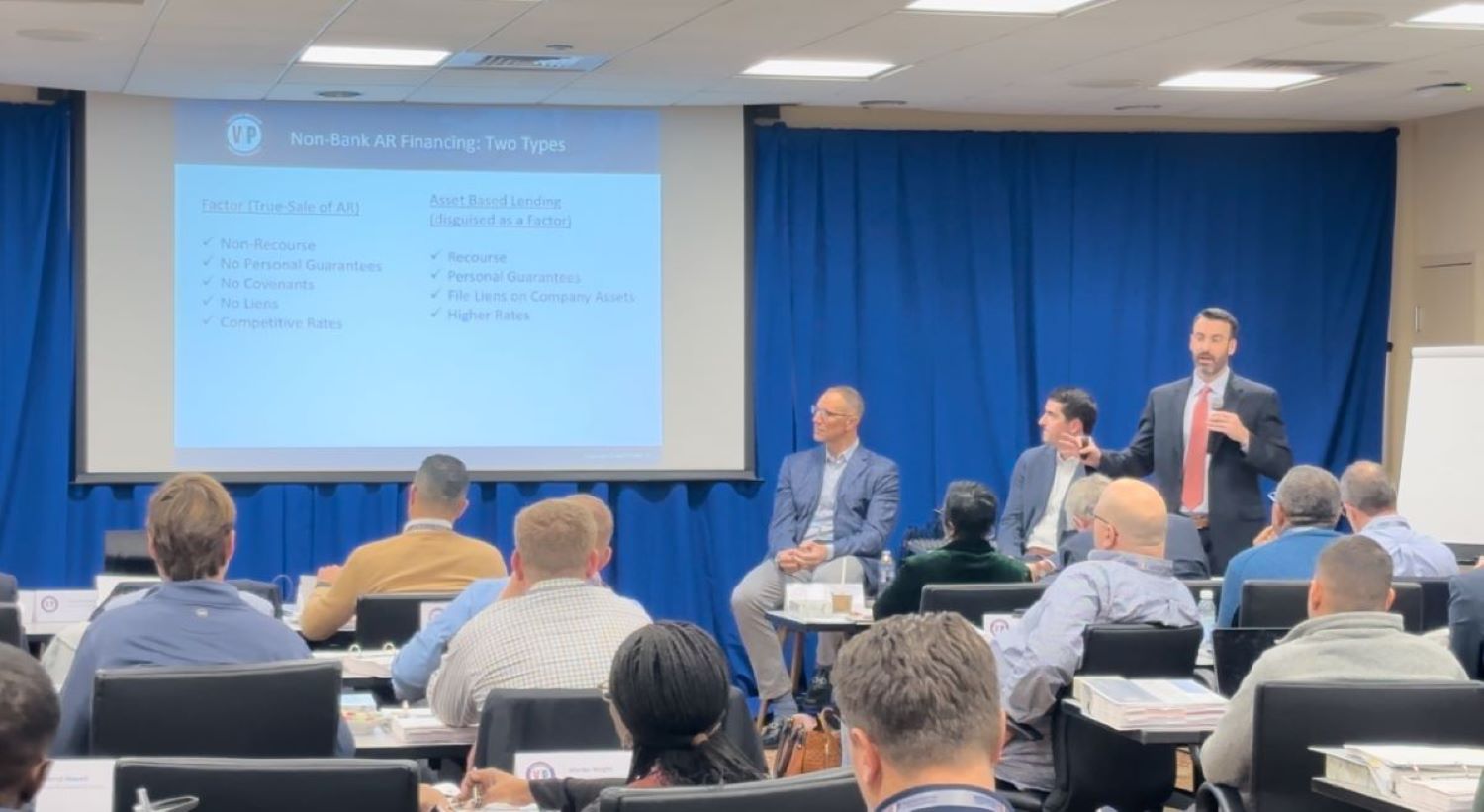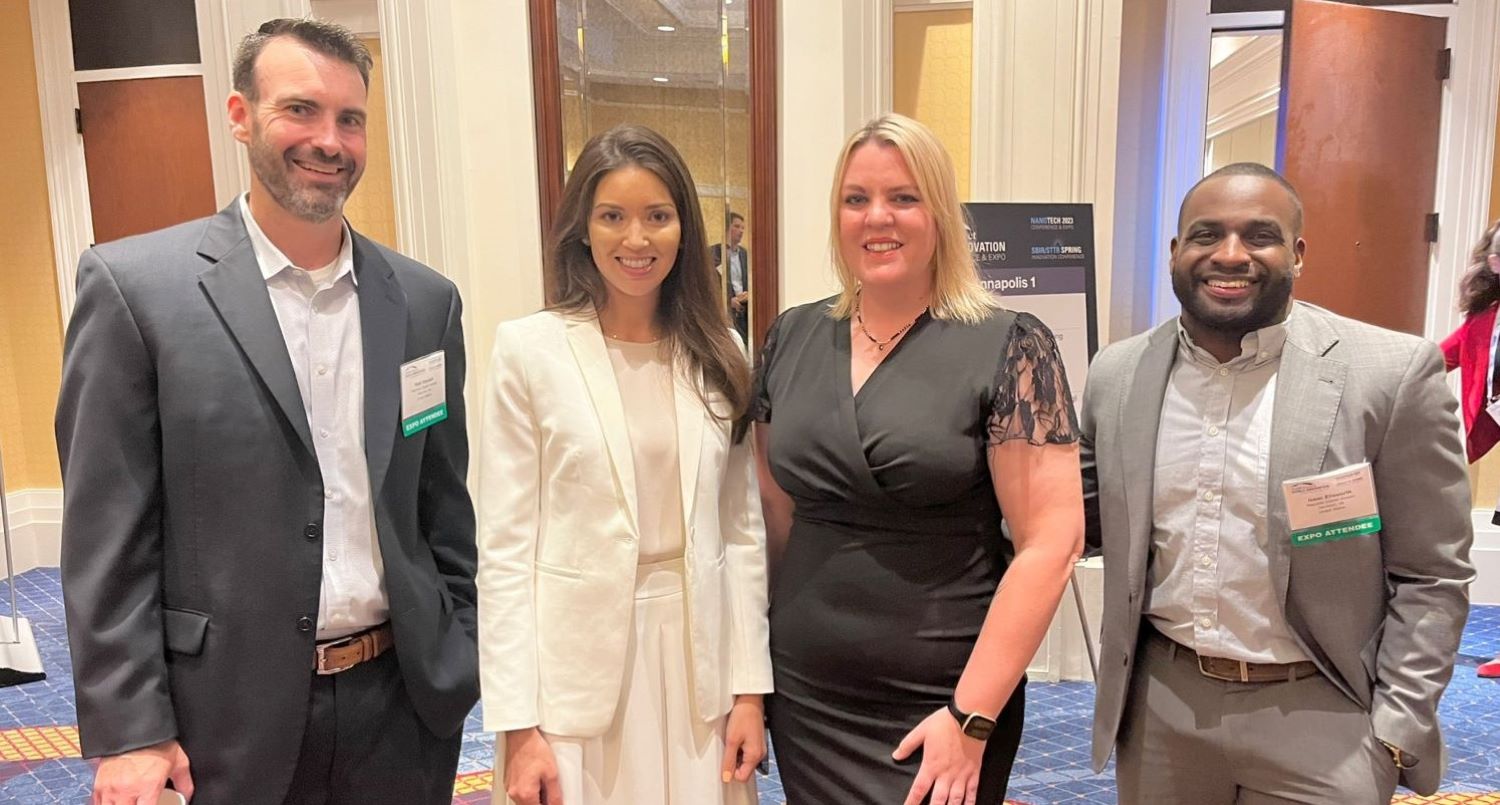Matt Stavish’s Expert Tips on Securing Contractor Financing
If you’re a government contractor, you’re likely familiar with the specific payment terms that characterize this industry.
While the government may process payments in as little as 15 days, there can still be a significant gap before those funds are received. During this time, contractors may encounter payroll obligations, unexpected expenses, or the need to purchase materials.
While financial pressure is common in many service-oriented sectors, it is particularly tough for contractors in construction because they frequently have to handle numerous payments and debts simultaneously. This can make cash flow management more complex and stressful.
That’s why numerous contractors seek contractor financing to manage project expenses and bridge the gap until they start receiving payments. Banks, along with other traditional lenders like credit unions and financial institutions, are typical sources of funding for these contractors.
Or funds, a wide array of financial resources available to contractors. This category includes equity funds, debt funds, grant funds, and crowdfunding. Despite the numerous funding options available, many contractors struggle to identify effective pathways to access these resources. This is where Matt Stavish, VP of Republic Capital Access, comes in. In a podcast conversation with Kizzy Parks, he outlined a clear approach to accessing these funding opportunities.
Matt Stavish and Republic Capital Access
Matt Stavish, Senior Vice President at Republic Capital Access, a company that partnered with government contractors to provide business owners and management teams with non-dilutive working capital to help build great companies.
Matt stated that “We’re a specialty finance company for government contractors, and we try to help people out by solving the timing issues that working capital receivables create in the government contracting space. What’s very unique about government contractors, especially on the services side, is that it’s the only business where you can legitimately triple or quadruple your employee count in a week due to a new contract award.”
He added, “That doesn’t happen in any other business. Because of this, very interesting short-term working capital issues are created for government contractors. We step in in a variety of situations, but what’s unique about working with the federal government is that it is by far the world’s most complicated.”

Republic Capital Access provides financing or support, to new businesses that do not have significant assets to secure loans or financial backing. They address the cash flow challenges that arise when businesses generate invoices but face a delay in receiving payments, particularly from government contracts.
“We help startups that have very little collateral base, and you know, I think the key thing to keep in mind is a very simple example for folks. You’re going to generate a receivable at the end of the month, and then that receivable is going to get paid 30 days later. You’re going to have bills that you need to pay between billing the government and getting paid by the government, and so we can bridge that gap by financing or purchasing that receivable,” Matt claimed.
Their service involves purchasing these receivables, allowing businesses to receive immediate cash to cover expenses like payroll and bills, without the need for liens, personal guarantees, or usage restrictions on the funds. This unique model enables startups to leverage the value of their invoices as assets, even without substantial equity or existing collateral.
Republic Capital Access has also developed an unbilled receivables platform, which provides loans against future receivables for work that has already started but hasn’t been billed yet. This service allows companies to access up to 80% of the expected payment in advance, helping them manage payroll and other expenses before invoicing clients.
Importantly, at republic Capital Access, the limitation on financing isn’t the company’s ability to provide funding but the client’s ability to secure contracts.
“I tell our clients that the limitation to their funding available through us would be their ability to win contracts, not our ability to fund,” Matt said.
Set-Asides for Small Business in GovCon Community

According to Matt, the government contracting (GovCon) community is tightly connected, and they often see people who work at small businesses leave to start their own ventures. These new companies may initially turn to traditional banks for financing, but quickly realize they need specialized financial services because they are not yet established enough for full banking relationships.
Despite its small size, GovCon is fertile ground for entrepreneurs due to the government’s massive spending and dedicated set-aside programs for small businesses. These set-asides, which include various categories, create a steady flow of opportunities for contractors.
“It’s such a small community, but it’s also a great ground for entrepreneurs. The government is a big spender, and they have small business set-asides, with various subcategories within those set-asides. This creates an ecosystem that, while small, offers a lot of opportunities constantly bubbling up,” he said.
He also touched on the importance of being relationship-focused and providing additional value, as the small size of the community means that reputation and connections play a significant role in long-term success.
“If you’re going to be in this space, you have to be relationship-oriented and a value-added firm, because it’s a small world out there,” Matt concluded.
Your Contract Will Be Canceled if You Don’t Pay the People Involved on Time
In government contract, It’s crucial not only to secure and successfully complete the work, but also to ensure timely payments to your team, contractors, and everyone else involved. Failing to do so can lead to a damaged reputation, and the agency might even terminate your contract.
“They may cancel your contract, or you could even get terminated if you don’t keep up with payments,” Matt warned.
If a contractor falls behind on payments to their team or subcontractors, those unpaid parties can potentially approach the contracting officer (CO) to request direct payment from the government. There are mechanisms in place to handle such issues.
However, these mechanisms are prepared for rare cases. In fact, one benefit of working with the government is that they tend to pay consistently, which helps contractors manage their cash flow more reliably, according to Matt Stavish.
According to him, while government contractors can rely on consistent payments from the government, everyone they owe—subcontractors, vendors, and others—are aware of this too and expect to be paid promptly.
“However, everyone you’re paying knows this as well, and they expect timely payments. The “pay-when-paid” model, common in small business, can often lead to murky or uncomfortable conversations. Even though you might say, “We’ll pay you when we’re paid,” your subcontractors or vendors will likely know when you’ve been paid, especially if it’s been 45 days or more,” said the VP.
He added, “So, yes, bills need to be paid, and the fact that the government is somewhat receptive to complaints about payment delays adds more pressure on the primes to be responsive and pay their bills on time.”
The Gap Between Starting the Contract and Generating Receivables
Matt Stavish paints a clear picture of the financing puzzle contractors face when working on government contracts. The challenge often lies in the gap between starting the project and generating a receivable—especially with unbilled work.
He further explained, “Let’s say you’re going to do a mask delivery to FEMA or, DHS or whoever it may be. Then you need to pay for the masks to be shipped. Well, that’s a different type of funding, but it’s still before that receivable is generated, and that would be a purchase order financing company, and there are some really good ones out there.”
Companies like Matt’s are great for those contractors that look for advance receivables to fill up the bills that need to be paid.
He said “We’re great for those guys and advance receivables, but it’s all about how to, you know, bridge that gap between that start work to generating the receivable. From there, it gets pretty simple. And depending if your services, that’s one type of an unbilled need, and product is a different type, and then construction is a whole other bird because it’s got bonding and all that sort of stuff.”

Matt Stavish encourages contractors to proactively seek out the right kind of financing for their specific needs at different stages of a project. By framing financing as a puzzle to solve, he motivates contractors to explore tailored funding options to ensure their projects run smoothly without cash flow interruptions.
”You know, it’s a puzzle—it’s a financing puzzle to solve on how do you kind of make sure that you get capital at various stages in that lifecycle of a contract,” he emphasized.
Even Big Guys Need Contractor Financing As Well
According to Matt, Republic Capital Access serves a wide range of clients, from smaller businesses generating $1 million annually to much larger firms with over $1 billion in revenue. However, the majority of their clients fall between $1 million and $50 million in annual revenue, equating to about $100,000 to $5 million in monthly receivables that they finance.
Despite the size differences, all clients use the same financing product, which involves buying receivables without recourse, liens, or covenants.
With that wide rage of customers, it proves that even bigger firms need contractor financing too. However, they have different purposes when accessing these funds. For larger companies, the financial metrics and balance sheets generated through their financing can be beneficial, improving the firm’s financial standing.
He explained, “Those bigger firms use this for different reasons than smaller firms. For example, the balance sheet metrics we generate can be positive for the firm. With the big contract you mentioned, we would provide a letter of financial capability for you to include in your bid, supporting you in your solicitation. We’ve had clients grow from 30 to 350 people in a month, using our unbilled product to cover their payrolls until they generate receivables. This kind of growth is only possible in government contracting, which creates all these fun problems to solve.”
Banks Financing vs Funds Financing
As shared by Matt Stavish, While banks do offer the cheapest capital, their stringent regulations and credit criteria can create hurdles for businesses that experience fast expansion. When a company grows quickly, it might find itself needing capital that exceeds its existing equity, making it an unsuitable candidate for traditional bank loans.
This is funds can be helpful when providing tailored financial solutions for a crucial period—typically ranging from 12 to 24 months just as what his company does.
He stated, “That’s where we fit in—to bridge that gap and help people get to the next stage of their growth. We’ve had situations where people were out of bank options, came to us, won new contracts, and then did great. They went back to the bank, and then they come back to us when they need support again. That’s happened many times, so we’re kind of that bridge to be a solution provider on that journey.”
Gat a Backup Plan – Adopt a Proactive Approach When Seeking Financing
Matt conveyed an important message to business owners about the need for a backup plan when seeking financing. While it was beneficial to pursue a bank loan, he said that it was essential to prepare for potential setbacks in the process. Until the financing documents were officially signed, there was always a risk that the deal might not go through as expected.
He claimed, “Until you sign those documents, there’s always a chance that things may not go as planned.”
He also highlighted the importance of having alternative funding options lined up in advance. If a business approaches them at the last minute for urgent funding, it could have been much easier if they had been proactive about securing financing ahead of time.
Because if the bank financing falls through, you’ve already prepared another option.

Matt also bought up a scenario that some businesses might turn to costly options like merchant cash advances or online lenders for immediate cash, these solutions can be expensive due to the risks involved.
“When funding is needed overnight, some businesses turn to merchant cash advances or online lenders. There’s a fit for that, but it’s often expensive because of the risk involved,” he shared.
Talk to People in the Contractor Financing Resources in Advance
Matt suggests that business owners should start conversations with financing firms or banks even before the contract start date. When reaching out early, companies can prepare for future needs and potentially receive proposals outlining their financing options. This can provide clarity and reassurance, helping businesses feel more prepared for upcoming financial needs.
“Earlier is better in talking with either a firm like ours or a bank before you have the win. Everyone will take the meeting, so that’s the biggest thing for folks to understand. If you have a contract that may happen in July, you should find a couple of people you can call in April to start having those conversations and get a proposal out,” he suggested.
He acknowledges that financing is just one aspect of government contracting, but maintaining open communication with financial providers can alleviate stress and simplify the process.
“I know that financing is just one piece of the government contracting puzzle, and there are a lot of other things to worry about, but having those proactive conversations with your provider is a great use of time and a significant stress reducer for your business. Being overly communicative to set that groundwork will make everything easier,” Matt advised.
Have Conversations with Your CPA or Attorneys
According to Matt, there are multiple things kind of happening right now in GovCon that people should kind of be aware of, particularly regarding the Paycheck Protection Program (PPP).
He stresses that businesses with Cost Plus or Time and Materials (T&M) contracts should consult their attorneys and CPAs if they have taken out PPP loans, especially as they navigate the loan forgiveness process. Understanding the implications of these loans on their contracts is crucial.
He said, “I would say, you know, there are multiple things kind of happening right now in GovCon that people should kind of be aware of. One is, you know, the PPP program. You know, talk to your attorneys and CPAs about it. You know, there are some articles and thought leaders out there that have talked about if you have Cost Plus or T&M contracts and you took a PPP loan and you’re going for forgiveness, you should be having conversations through CPA attorneys.”









